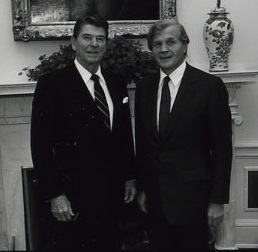A Quote by George F. Kennan
War is a highly overrated tool of foreign policy.
Related Quotes
This is the problem with foreign policy - talking about foreign policy in a political context. Politics is binary. People win and lose elections. Legislation passes or doesn't pass. And in foreign policy often what you're doing is nuance and you're trying to prevent something worse from happening. It doesn't translate well into a political environment.
If I were Donald Trump, I would definitely not pick Mitt Romney because it's very easy for Mitt Romney to have have a separate foreign policy operatus in the State Department that would run a dissenting foreign policy from the White House foreign policy. There, I think the populist America-first foreign policy of Donald Trump does run against a potential rival.
We are apt to say that a foreign policy is successful only when the country, or at any rate the governing class, is united behind it. In reality, every line of policy is repudiated by a section, often by an influential section, of the country concerned. A foreign minister who waited until everyone agreed with him would have no foreign policy at all.
There is nothing puzzling ... about America's gratuitously aggressive foreign policy or about the oligarchs' successful efforts to drag the Republic into five wars. What an aggressive foreign policy accomplishes by slow degrees, a state of war accomplishes in a trice. Overnight [war] kills reform, overnight it transforms insurgents into traitors and the Republic into an imperiled realm. Overnight it strangles free politics, distracts and overawes the citizenry. Overnight it blasts public hope.
The people and the warmakers are two distinct groups. We must never say 'we' when discussing the US government's foreign policy. For one thing, the warmakers do not care about the opinions of the majority of Americans. It is silly and embarrassing for Americans to speak of 'we' when discussing their government's foreign policy, as if their input were necessary to or desired by those who make war.








































